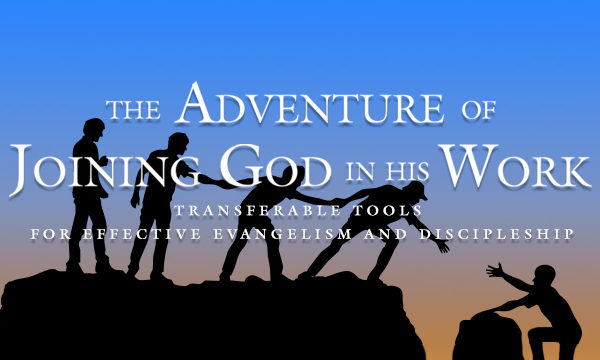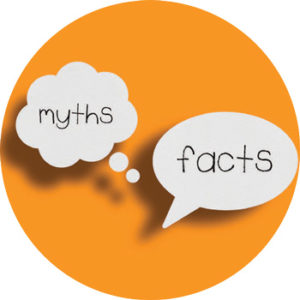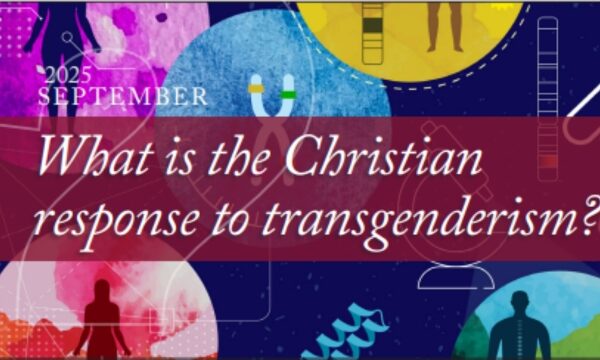Back to series

July 2022
Art Lindsley has observed that one of the obstacles for C.S. Lewis coming to faith was the similarity between Christian and pagan mythology. Since pagan myths were assumed to be false, he wondered why Christianity should be treated differently. Later, after a discussion with J.R.R. Tokien, Lewis came to understand that that Jesus was the “myth become fact.”1 In his book Miracles, Lewis defined myth as, “at its best, a real though unfocused gleam of divine truth falling on human imagination.”2 The following is an excerpt from an essay by Lewis, first published in 1944, titled “Myth Became Fact”:
…What flows into you from the myth is not truth but reality (truth is always about something, but reality is that about which truth is), and, therefore, every myth becomes the father of innumerable truths on the abstract level. Myth is the mountain whence all the different streams arise which become truths down here in the valley; in hac valle abstractionis.3 Or, if you prefer, myth is the isthmus which connects the peninsular world of thought with that vast continent we really belong to. It is not, like truth, abstract; nor is it, like direct experience, bound to the particular.
Now as myth transcends thought, Incarnation transcends myth. The heart of Christianity is a myth which is also a fact. The old myth of the Dying God, without ceasing to be myth, comes down from the heaven of legend and imagination to the earth of history. It happens—at a particular date, in  a particular place, followed by definable historical consequences. We pass from a Balder or an Osiris, dying nobody knows when or where, to a historical Person crucified (it is all in order) under Pontius Pilate. By becoming fact it does not cease to be myth: that is the miracle. I suspect that men have sometimes derived more spiritual sustenance from myths they did not believe than from the religion they professed. To be truly Christian we must both assent to the historical fact and also receive the myth (fact though it has become) with the same imaginative embrace which we accord to all myths. The one is hardly more necessary than the other…
a particular place, followed by definable historical consequences. We pass from a Balder or an Osiris, dying nobody knows when or where, to a historical Person crucified (it is all in order) under Pontius Pilate. By becoming fact it does not cease to be myth: that is the miracle. I suspect that men have sometimes derived more spiritual sustenance from myths they did not believe than from the religion they professed. To be truly Christian we must both assent to the historical fact and also receive the myth (fact though it has become) with the same imaginative embrace which we accord to all myths. The one is hardly more necessary than the other…
Those who do not know that this great myth became Fact when the Virgin conceived are, indeed, to be pitied. But Christians also need to be reminded … that what became Fact was a Myth, that it carries with it into the world of Fact all the properties of a myth. God is more than a god, not less; Christ is more than Balder, not less. We must not be ashamed of the mythical radiance resting on our theology. We must not be nervous about ‘parallels’ and ‘Pagan Christs’: they ought to be there—it would be a stumbling block if they weren’t. We must not, in false spirituality, withhold our imaginative welcome. If God chooses to be mythopoeic—and is not the sky itself a myth—shall we refuse to be mythopathic? For this is the marriage of heaven and earth: Perfect Myth and Perfect Fact: claiming not only our love and our obedience, but also our wonder and delight, addressed to the savage, the child, and the poet in each one of us no less than to the moralist, the scholar, and the philosopher.4
What do you think about Lewis’s statement that “[t]o be truly Christian we must both assent to the historical fact and also receive the myth (fact though it has become) with the same imaginative embrace which we accord to all myths”? How does a biblical understanding of Jesus Christ help us understand everything else?
“In the beginning was the Word, and the Word was with God, and the Word was God.
He was in the beginning with God. All things were made through him, and without him
was not any thing made that was made. In him was life, and the life was the light of men.
The light shines in the darkness, and the darkness has not overcome it.”
JOHN 1:1-5 (ESV)
1 See Art Lindsley, C.S. Lewis’s Case for Christ (Downers Grove: IVP Books, 2005) chapters 2 and 5, and Art Lindsley,
“C.S. Lewis’s Seven Key Ideas”, https://www.cslewisinstitute.org/resources/c-s-lewis-seven-key-ideas/.
2 C.S. Lewis, Miracles (New York: Touchstone, 1996), p. 176.
3 ‘In this valley of separation.’
4 ‘C.S. Lewis, “Myth Became Fact” in God in the Dock (Grand Rapids: Eerdmanns, 1998), pp. 66-67.
 COPYRIGHT: This publication is published by C.S. Lewis Institute; 8001 Braddock Road, Suite 301; Springfield, VA 22151. Portions of the publication may be reproduced for noncommercial, local church or ministry use without prior permission. Electronic copies of the PDF files may be duplicated and transmitted via e-mail for personal and church use. Articles may not be modified without prior written permission of the Institute. For questions, contact the Institute: 703.914.5602 or email us.
COPYRIGHT: This publication is published by C.S. Lewis Institute; 8001 Braddock Road, Suite 301; Springfield, VA 22151. Portions of the publication may be reproduced for noncommercial, local church or ministry use without prior permission. Electronic copies of the PDF files may be duplicated and transmitted via e-mail for personal and church use. Articles may not be modified without prior written permission of the Institute. For questions, contact the Institute: 703.914.5602 or email us.
-
Recent Podcasts
The Importance of Imagination for C.S. Lewis and for Us
by Arthur W. Lindsley, Aimee Riegert on September 5, 2025C.S. Lewis’ enduring influence lies in his rare...Read More
-
The Four Gospels: Trustworthy, Forged, or Corrupted?
by Peter J. Williams, Kathleen Noller on September 5, 2025
-
Looking for Meaning – Allison Leonhardt’s story
by Jana Harmon, Allison Leonhardt on August 29, 2025
-
Recent Publications
What is the Christian response to transgenderism?
by Alycia Wood on August 25, 2025Many modern people believe the universe is governed...Read More
-
Cosmic Chemistry: Do God and Science Mix?
by John Lennox on August 15, 2025
-
When Truth Is Lost, Goodness Distorted, And Beauty Forgotten
by Thiago M. Silva on July 29, 2025
0
All Booked
0.00
All Booked
0.00
All Booked
24720
The Adventure of Joining God in His Work Live Online Small Group 7:00 PM CT
https://www.cslewisinstitute.org/?event=the-adventure-of-joining-god-in-his-work-live-online-small-group-700-pm-ct&event_date=2025-09-16®=1
https://www.paypal.com/cgi-bin/webscr
2025-09-16

Next coming event
Days
Hours
Minutes
Seconds
The Adventure of Joining God in His Work Live Online Small Group 7:00 PM CT
On September 16, 2025 at 7:00 pmSpeakers

C.S. Lewis Institute
Author
Team Members
C.S. Lewis Institute
Author
C.S. Lewis Institute, in the legacy of C.S. Lewis, works to develop wholehearted disciples of Jesus Christ who will articulate, defend, share, and live their faith in personal and public life. Founded in 1976 by Dr. James Houston and James R. Hiskey, the Institute provides leading teachers who address important issues of the day from the perspective of Biblical orthodoxy, while also providing discipleship for individuals in small groups.





